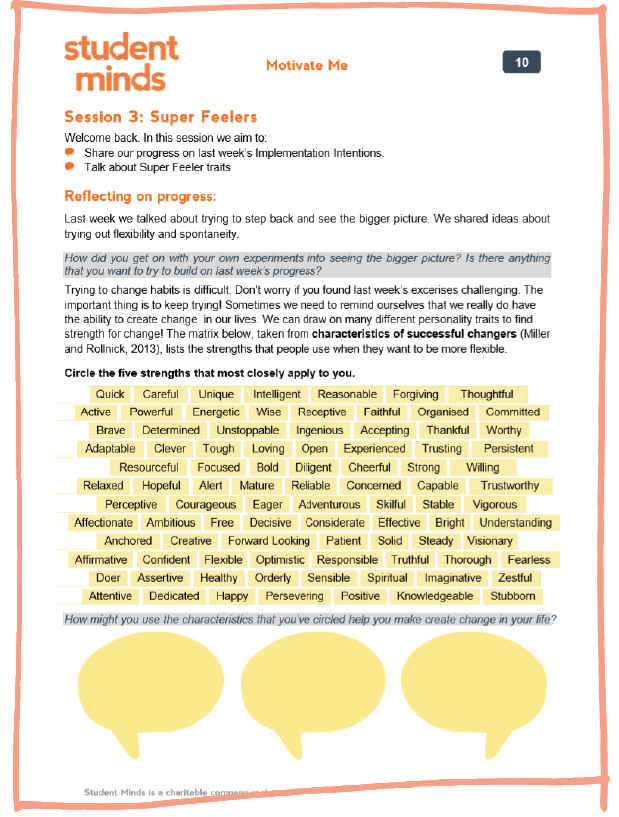Please note that due to Covid-19, we're currently not running this peer support course
Eating Difficulties
The Student Minds Eating Difficulty groups provide support to students experiencing difficulties around food and eating. The groups are confidential, maintain a pro-recovery focus and keep conversations supportive by following a set of ground rules. The groups have an informal atmosphere and are a great opportunity to meet people with similar experiences.
Student Minds offers two types of eating difficulties groups: an unstructured group that is purely discussion-based and a structured six week course called Motivate Me. You can see if your university has one of these groups here.
Student Minds offers two types of eating difficulties groups: an unstructured group that is purely discussion-based and a structured six week course called Motivate Me. You can see if your university has one of these groups here.
Motivate MeMotivate Me is a six week course that focuses on helping students to develop strategies to manage the challenges that individuals experiencing eating difficulties commonly encounter.
This course has been designed to support students to think about making changes in their lives. However, this course will not talk about eating habits or your relationship with food explicitly. Eating difficulties are often a coping strategy to manage difficult psychological challenges, so you will find this course focusing on these. |
Something a little less structuredHere is a basic layout of how the sessions run:
|
Are the eating difficulties groups right for you?
The groups are not suitable for individuals experiencing more severe eating difficulties and are not a substitute for professional treatment. It is always advisable to seek professional support if you think you may be experiencing an eating disorder. We would strongly encourage you to book an appointment with your university counsellor or your local GP. For further suggestions on where you might access support, please visit our Further Support Section if you feel like you need urgent support visit our page here.
The groups are not suitable for individuals experiencing more severe eating difficulties and are not a substitute for professional treatment. It is always advisable to seek professional support if you think you may be experiencing an eating disorder. We would strongly encourage you to book an appointment with your university counsellor or your local GP. For further suggestions on where you might access support, please visit our Further Support Section if you feel like you need urgent support visit our page here.


